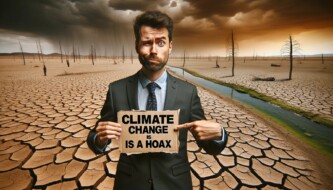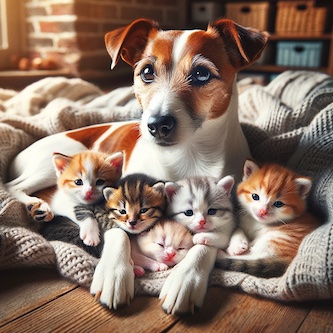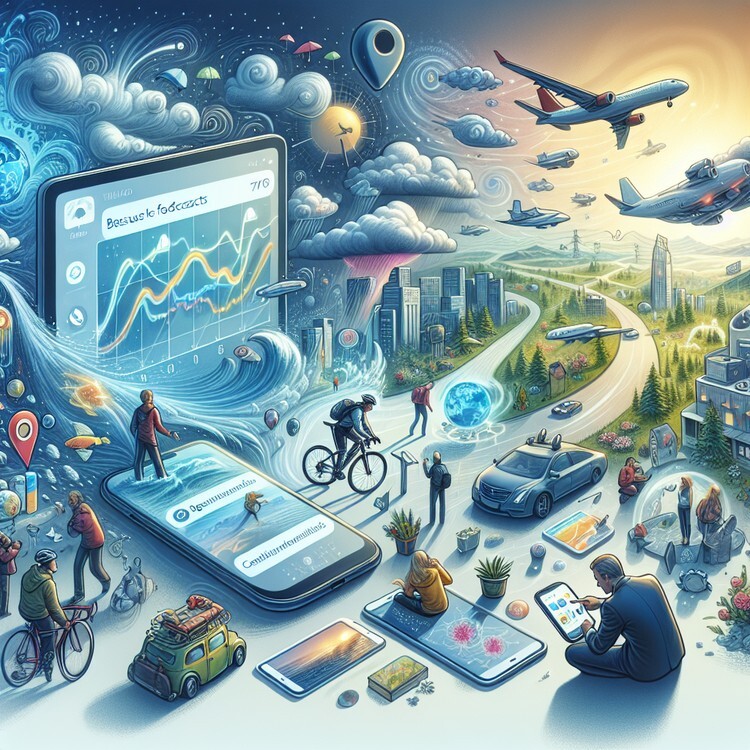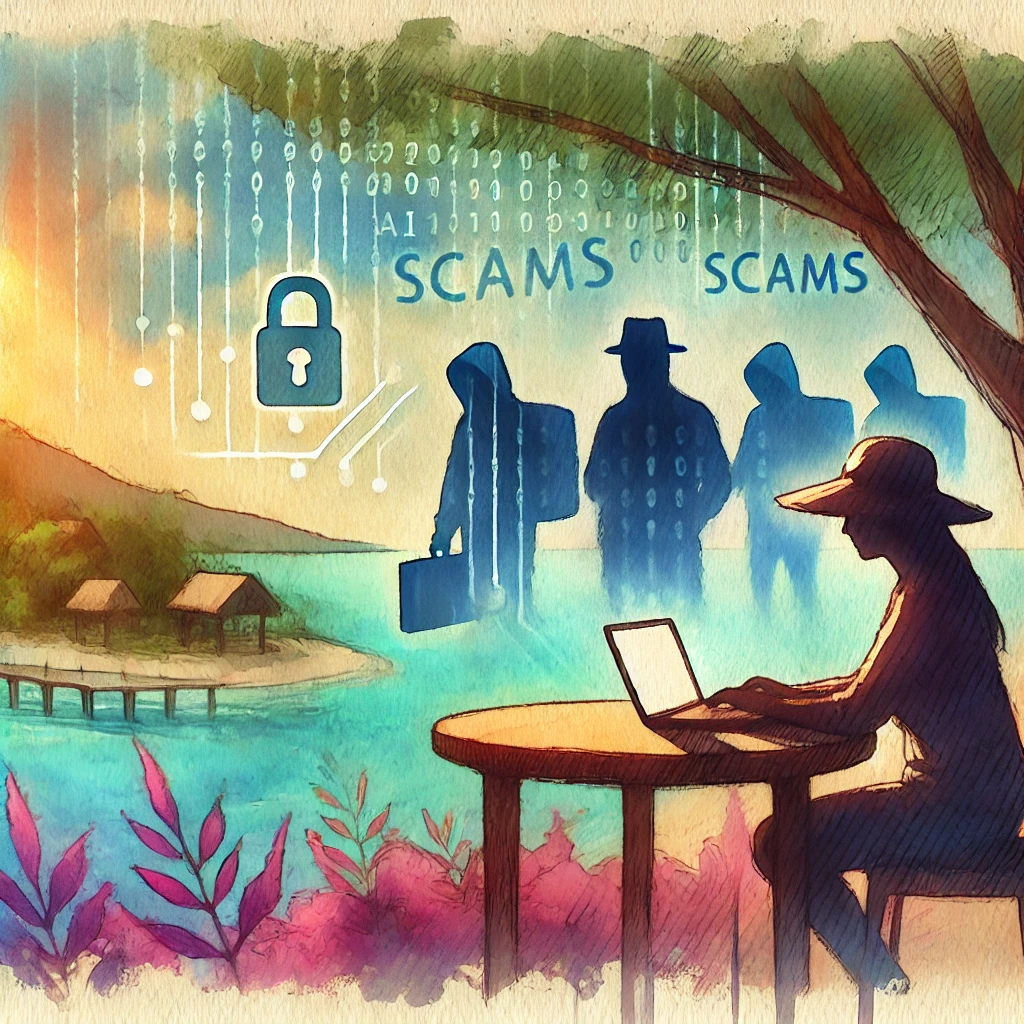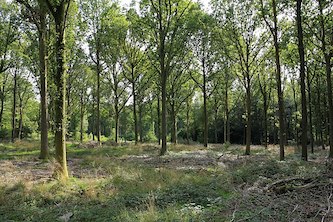A woman named Sarah Ott used to not believe in climate change. She thought it was a trick because of what she heard from friends and a radio man named Rush Limbaugh. But then she heard different ideas from a group that talks on the radio. Sarah learned new things and started to teach others about why we should take care of our planet.
Sarah had to make big changes in her life, and it was hard. She felt sad and worried after having a baby. But she knew it was important to learn the truth and do something to help. Sarah says we should talk to people who don’t believe in climate change by finding things we all care about. She changed her mind, and she thinks other people can too.
Sarah’s story shows us that people can change their ideas even when it’s tough. She learned a lot and now she wants to help the Earth. Sarah tells her story to make other people think and maybe change too. She wants everyone to learn and help our planet get better.
Original news source: I thought climate change was a hoax. Now I’ve changed my mind’ (BBC)
Listen
Slow
Normal
Fast
Group or Classroom Activities
Warm-up Activities:
– News Summary
Instructions: Divide the class into pairs or small groups. Give each group a few minutes to read the article. Then, ask each group to summarize the main points of the article in a short news summary. They can write it down or present it orally to the class.
– Opinion Poll
Instructions: Write the following statement on the board: “Climate change is a real and urgent problem.” Ask students to stand up and move to one side of the room if they agree with the statement, and to the other side if they disagree. Once they have chosen their side, ask them to discuss in pairs or small groups why they agree or disagree with the statement. After a few minutes, have a class discussion where students can share their opinions and reasons.
– Vocabulary Pictionary
Instructions: Write a list of vocabulary words from the article on the board. Divide the class into pairs. Give each pair a word and ask them to draw a picture that represents the word. The other pairs have to guess the word based on the drawing. The pair who guesses the word correctly gets a point. Continue until all the words have been guessed.
– Speed Summarizing
Instructions: Divide the class into pairs. Give each pair a timer (e.g. one minute). Ask one student in each pair to summarize the article to their partner within the given time limit. After one minute, the roles switch and the other student has to summarize the article. Encourage students to use their own words and include the main points. After a few rounds, ask a few pairs to share their summaries with the whole class.
– Future Predictions
Instructions: Ask students to work individually and write down three predictions about the future of our planet based on the information in the article. For example, “In the future, more people will believe in climate change.” After a few minutes, have students share their predictions in pairs or small groups. Encourage them to explain why they made those predictions. Then, have a class discussion where students can share their predictions with the whole class.
Comprehension Questions:
1. What did Sarah used to think about climate change?
2. Who did Sarah hear different ideas from?
3. Why did Sarah feel sad and worried after having a baby?
4. Why did Sarah think it was important to learn the truth about climate change?
5. How does Sarah suggest talking to people who don’t believe in climate change?
6. What does Sarah want other people to do after hearing her story?
7. What is Sarah’s main goal for the Earth?
Go to answers ⇩
Listen and Fill in the Gaps:
A woman named Sarah Ott used to not (1)______ in climate change. She (2)______ it was a trick because of what she heard from friends and a radio man named Rush Limbaugh. But then she heard (3)______ ideas from a group that talks on the radio. Sarah learned new (4)______ and started to teach others about why we should take care of our planet.
Sarah had to make big changes in her life, and it was (5)______. She felt sad and worried after having a baby. But she (6)______ it was important to learn the truth and do something to help. Sarah says we should (7)______ to (8)______ who don’t believe in climate change by finding things we all care about. She changed her mind, and she thinks (9)______ people can too.
Sarah’s story shows us that people can (10)______ their ideas even when it’s tough. She learned a lot and now she wants to help the Earth. Sarah tells her (11)______ to (12)______ other people think and maybe change too. She wants everyone to learn and help our planet get better.
Go to answers ⇩
Discussion Questions:
Students can ask a partner these questions, or discuss them as a group.
1. What did Sarah used to think about climate change?
2. Who did Sarah hear different ideas from?
3. How did Sarah feel after having a baby?
4. Why did Sarah think it was important to learn the truth about climate change?
5. What does Sarah suggest we should do to talk to people who don’t believe in climate change?
6. What did Sarah have to do in her life to make a difference?
7. How did Sarah’s ideas change after learning new things?
8. What does Sarah want to do to help the Earth?
9. Why does Sarah tell her story to other people?
10. What does Sarah want everyone to do to help our planet?
11. Do you believe in climate change? Why or why not?
12. How can we take care of our planet in our daily lives?
Individual Activities
Vocabulary Meanings:
Match each word to its meaning.
Words:
1. climate change
2. trick
3. radio
4. ideas
5. truth
6. baby
7. mind
8. Earth
Meanings:
(a) The change in weather patterns caused by humans
(b) The planet we live on
(c) A device that plays music and talks
(d) Thoughts or opinions
(e) Thoughts or concepts
(f) The true facts or reality
(g) A small child
(h) Something that is meant to deceive or fool someone
Go to answers ⇩
Multiple Choice Questions:
1. What did Sarah Ott used to believe about climate change?
(a) She thought it was important
(b) She thought it was a trick
(c) She didn’t know anything about it
(d) She thought it was a natural process
2. Who did Sarah hear different ideas from?
(a) Her friends
(b) Rush Limbaugh
(c) Her family
(d) A group that talks on the radio
3. Why did Sarah feel sad and worried?
(a) Because she didn’t believe in climate change
(b) After having a baby
(c) Because she didn’t like the radio man
(d) Because she didn’t understand the group
4. What did Sarah think was important to do after learning the truth about climate change?
(a) To ignore the problem
(b) To stop talking to people
(c) To take care of our planet
(d) To keep the truth a secret
5. How did Sarah change her mind about climate change?
(a) She learned new things
(b) She stopped listening to the radio
(c) She talked to Rush Limbaugh
(d) She ignored what her friends said
6. What does Sarah want to do now?
(a) Ignore the problem
(b) Keep the truth a secret
(c) Stop talking to people
(d) Help the Earth
7. Why does Sarah tell her story?
(a) To keep the truth a secret
(b) To ignore the problem
(c) To make other people think and maybe change too
(d) To stop talking to people
8. What does Sarah want everyone to do?
(a) Learn and help our planet get better
(b) Ignore the problem
(c) Keep the truth a secret
(d) Stop talking to people
Go to answers ⇩
True or False Questions:
1. Sarah Ott used to not believe in climate change because of what she heard from her friends and a radio man named Rush Limbaugh.
2. Sarah did not hear different ideas from a group that talks on the radio and it made her change her mind about climate change.
3. Sarah felt sad and worried after having a baby, but she still wanted to learn the truth and do something to help the planet.
4. Sarah does not believe that we should talk to people who don’t believe in climate change by finding common things we all care about.
5. Sarah’s story shows that people can change their ideas even when it’s tough.
6. Sarah does not want everyone to learn and help make the planet better.
7. Sarah had to make big changes in her life and it was difficult for her.
8. Sarah does not want to help the Earth and she does not tell her story to make other people think or change.
Go to answers ⇩
Write a Summary:
Write a summary of this news article in two sentences.
Check your writing now with the best free AI for English writing!
Writing Questions:
Answer the following questions. Write as much as you can for each answer.
Check your answers with our free English writing assistant!
1. What did Sarah Ott used to think about climate change?
2. Who did Sarah Ott hear different ideas from?
3. Why did Sarah feel sad and worried after having a baby?
4. What does Sarah think we should do to talk to people who don’t believe in climate change?
5. Why does Sarah tell her story?
Answers
Comprehension Question Answers:
1. What did Sarah used to think about climate change?
Sarah used to not believe in climate change.
2. Who did Sarah hear different ideas from?
Sarah heard different ideas from a group that talks on the radio.
3. Why did Sarah feel sad and worried after having a baby?
Sarah felt sad and worried after having a baby because she realized she needed to do something to help the Earth.
4. Why did Sarah think it was important to learn the truth about climate change?
Sarah thought it was important to learn the truth about climate change so she could understand why it is important to take care of our planet.
5. How does Sarah suggest talking to people who don’t believe in climate change?
Sarah suggests talking to people who don’t believe in climate change by finding things we all care about and starting a conversation from there.
6. What does Sarah want other people to do after hearing her story?
Sarah wants other people to think about her story and maybe change their minds about climate change.
7. What is Sarah’s main goal for the Earth?
Sarah’s main goal for the Earth is to help it get better by teaching others about why we should take care of our planet.
Go back to questions ⇧
Listen and Fill in the Gaps Answers:
(1) believe
(2) thought
(3) different
(4) things
(5) hard
(6) knew
(7) talk
(8) people
(9) other
(10) change
(11) story
(12) make
Go back to questions ⇧
Vocabulary Meanings Answers:
1. climate change
Answer: (a) The change in weather patterns caused by humans
2. trick
Answer: (h) Something that is meant to deceive or fool someone
3. radio
Answer: (c) A device that plays music and talks
4. ideas
Answer: (e) Thoughts or concepts
5. truth
Answer: (f) The true facts or reality
6. baby
Answer: (g) A small child
7. mind
Answer: (d) Thoughts or opinions
8. Earth
Answer: (b) The planet we live on
Go back to questions ⇧
Multiple Choice Answers:
1. What did Sarah Ott used to believe about climate change?
Answer: (b) She thought it was a trick
2. Who did Sarah hear different ideas from?
Answer: (d) A group that talks on the radio
3. Why did Sarah feel sad and worried?
Answer: (b) After having a baby
4. What did Sarah think was important to do after learning the truth about climate change?
Answer: (c) To take care of our planet
5. How did Sarah change her mind about climate change?
Answer: (a) She learned new things
6. What does Sarah want to do now?
Answer: (d) Help the Earth
7. Why does Sarah tell her story?
Answer: (c) To make other people think and maybe change too
8. What does Sarah want everyone to do?
Answer: (a) Learn and help our planet get better
Go back to questions ⇧
True or False Answers:
1. Sarah Ott used to not believe in climate change because of what she heard from her friends and a radio man named Rush Limbaugh. (Answer: True)
2. Sarah did not hear different ideas from a group that talks on the radio and it made her change her mind about climate change. (Answer: False)
3. Sarah felt sad and worried after having a baby, but she still wanted to learn the truth and do something to help the planet. (Answer: True)
4. Sarah does not believe that we should talk to people who don’t believe in climate change by finding common things we all care about. (Answer: False)
5. Sarah’s story shows that people can change their ideas even when it’s tough. (Answer: True)
6. Sarah does not want everyone to learn and help make the planet better. (Answer: False)
7. Sarah had to make big changes in her life and it was difficult for her. (Answer: True)
8. Sarah does not want to help the Earth and she does not tell her story to make other people think or change. (Answer: False)
Go back to questions ⇧



